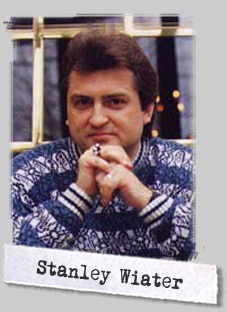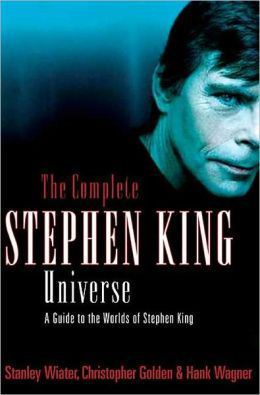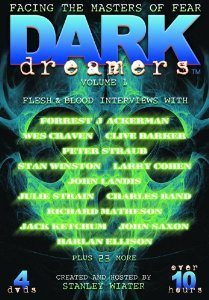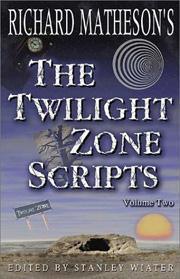Jonathan Janz's Blog, page 21
December 23, 2013
Savage Species - The Final Review
 Reblogged from The Curse Blog:
Reblogged from The Curse Blog:
This past Halloween I got a chance to finish up Jonathan Janz's serial novel, Savage Species. The last two parts of this book are pretty relentless. The action is very high tension and there is no ease off the accelerator. Just when you think a threat has been eliminated, three more pop up. Janz has done a wonderful job of connecting the readers with the characters.
A Review of SAVAGE SPECIES from The Curse Blog!
December 21, 2013
Potatoland (and Why You Should Be Watching Classic Mickey Mouse)

Fantastic Rivalry. Fantastic Show.
My kids are young, which means they watch shows intended for younger audiences. And while that wasn’t an extraordinarily deep statement, it does set the stage for a major issue in the world of kids’ entertainment:
Many folks don’t go above and beyond to make the best product possible.
Come on. We’ve all seen them. Kids’ movies that insult even a toddler’s intellect. Movies that don’t make any effort to do something interesting, to layer meanings, to tier their entertainment so someone other than a fart joke aficionado can enjoy it. I mean, I know I’m not the target audience for kids’ shows, but is it too much to ask for them to throw me a bone every now and then? And I’m not talking about an occasional crass bit of sexual innuendo either. No, I mean…something witty. Something creative.
Something like the wonderful Phineas and Ferb (yep, I said that). And the newish series Classic Mickey Mouse.
We happened upon this show a couple months ago, and within thirty seconds I could see that here was something different. Something witty. Something creative.
The show isn’t a rerun of old shows, by the way; it’s called “classic” because it adopts some of the classic styles of yesteryear’s animation. At least I think that’s why they call it that. The average episode of Classic Mickey Mouse lasts a grand total of four minutes, so it’s not like it’ll be a major time investment for you. And if you want to test my taste, feel free to check out this link to “Potatoland,” which is a longish episode for the show (seven minutes) but quite indicative of the quality I’m talking about.

Chant it with me…
So we begin with Mickey and Donald driving Goofy to a place Goofy has dreamed about since earliest childhood: Potatoland. It soon becomes apparent that Potatoland doesn’t really exist—at least not in the theme park sense that Goofy envisions. What follows is pure genius.

Creativity
To appreciate Classic Mickey Mouse, you have to really study it, and you really need to remember that the makers didn’t have to go to the lengths to which they went to make the show interesting on so many levels. But they did. Every frame is infused with ingenuity. You never get the sense the creators are going through the motions. So, specifically, what do I like about it?
The music is as varied as it is perceptive.
The voice talent is incredible. The delivery of the actors alone makes the show entertaining.

Goofy’s Dream
The animation is full of treats, from the artistic design of the backgrounds to the wonderfully varied facial expressions of the characters.
The plots and twists are always engaging.
The soundscape is nuanced.
Have I mentioned the show is really, really funny?
So watch “Potatoland. Then watch the rest of the Classic Mickey Mouse shorts. Then just see if you don’t spend the next day shouting “Potato-LAND! Potato-LAND! Potato-LAND!”
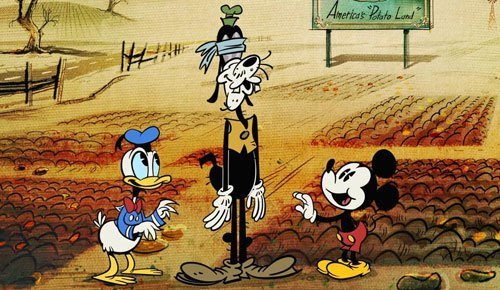
Unveiling


December 7, 2013
OLD ORDER (or The Dangers of Not Writing Amish Romances)
You’ve heard the analogy before, but it’s true: an author’s stories are his children. By creating a fictional universe, the author is mother, father, midwife, OB, pediatrician, and occasionally, the story’s childhood psychiatrist. And as a result of this closeness, an author gets pretty dang attached to his babies. It’s why you see authors whose work has been adapted for the screen flip out over changes made to the source material (“How dare Scorsese not include the forty-six page interior monologue scene about a minor character’s childhood trauma involving an oboe and a cockroach!”). It’s why authors sometimes behave badly when their books get bad reviews. That’s partially because no one likes to have his/her work criticized. It’s also because people can sometimes be buttheads when writing reviews. Of course, authors are often buttheads too, so it all balances out.
Where am I heading with all of this?
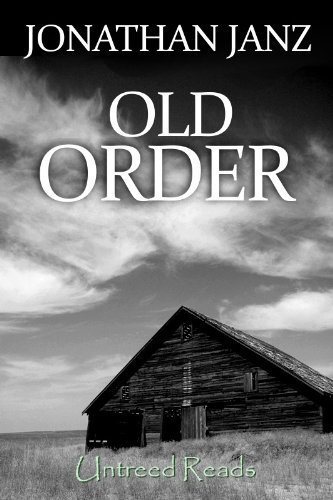
Trust Me…You’re Gonna Like This One
You see, I wrote a novella a few years ago called OLD ORDER. It was published by a great company out of San Francisco called Untreed Reads. If you look at Goodreads, Amazon, Barnes & Noble, and some graffiti scrawled on a gas station restroom wall in Mud Lake, Idaho, you’ll find that of all my stories, OLD ORDER is the worst-reviewed. I’m not one to criticize critiques, so don’t worry about my going there. I’m genuinely grateful to anyone who reads anything I write, and no, none of the negative reviews of OLD ORDER have been penned by buttheads. At least I have no reason to think they’re any buttheadier than any other people.
But if you look closely, you’ll notice that many of the reviews bemoaned the fact that the story was not an Amish romance, that it had nothing to do with the Amish, or that it was a very offensive story that, by the way, did not contain a single butter churn.
The reason for this is that the story is not an Amish story.
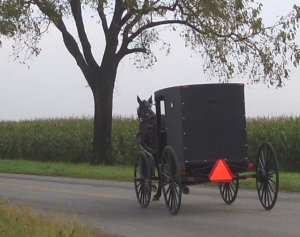
My New Ride
Still, I can see why folks might have thought that. The main character pretends to be Amish to ingratiate himself with unsuspecting victims of his thievery. This makes a group of his potential victims angry. (And yep, I see the meta-irony of having reviewers pan a story about a man who gets into trouble for not being an Amish person because they found out it was a story the story didn’t feature an Amish peson.) There’s also a rural setting on the cover, which I guess could be construed as Mennonite-ey. So the point I’m finally getting to is…
It’s a really good story. Now, of course I’d feel that way, being the author and all, but when you read reviews by folks who knew they were getting a horror/suspense/thriller, you find a completely different response than the outraged pans. Basically, the tale has bunches of four and five-star reviews and a slew of one-star reviews. This leads me to believe that expectations play a profound role in one’s reception to this tale. Or I could be completely wrong and am just being too charitable with my story because I endured a long, painful labor with it and wasn’t even given an epidural.
So I’ll make it resoundingly clear: THIS IS NOT A SWEET, MOVING, BONNET-WEARING TALE OF A GERMAN BAPTIST GIRL AND HER RELATIONSHIP WITH A STOIC BARN-RAISING LAD NAMED JASPER.
It’s a suspenseful, scary, erotic, ferocious roller-coaster-rocket of a tale with all sorts of things that would make many readers blush (or gasp).
So if you like that sort of thing, I really hope you give OLD ORDER a chance (for only 99 cents at the link!). I think you’ll be happy you did. Of course, it’s entirely possible you’ll hate the story even if you’re expecting a horror/thriller/suspense tale. And that’s totally cool. But I’m guessing that the percentage of happy readers will rise if everyone knows what kind of story this is.
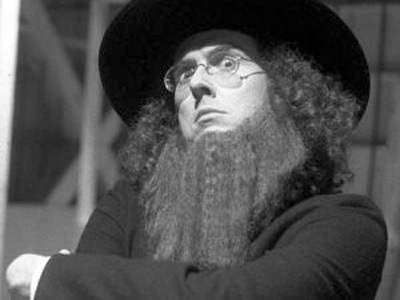
Weird Al
*Note: I know that German Baptist, Amish, Mennonite, and Old Order are not interchangeable. I’m just trying to cover all the terminology used in the different negative reviews I’ve read.
**Another Note: I like the German Baptist folks I know. Seriously. The ones with whom I’m acquainted are really nice people. And they aren’t named Jasper either. I’ll have to ask them about the butter churn thing.


December 1, 2013
How Close We All Are
The thoughts in this post are going to be incredibly obvious to everyone, but they’re on my mind a lot lately.
The thoughts are about death.
You should know I’m extremely worried all the time about someone I love dying. My wife jokes that I’m the FSM (Family Safety Monitor), but that doesn’t begin to scratch the surface of my paranoia. I see life like a Final Destination movie, with every object in my kids’ proximity taking on ridiculously sinister overtones (“Well, I KNOW that the printer itself isn’t dangerous, but what about that ink cartridge? If my two-year-old should somehow disengage that and put it in her mouth, it could not only present a choking hazard, it could break open and release dangerous toxins!”). It’s where my OCD nature and intrusive thoughts couple in an unholy union with my love for my family; what is spawned is a neverending state of terror and preemptive disaster aversion.
Yeah, I’ve got problems.

My Lens
So today an actor named Paul Walker died. I was at a piano/voice recital for part of the day and working on one of my current works-in-progress for the rest of it, so I only got to check Facebook and Twitter once. What I saw can be distilled into two groups of thoughts:
Group A: “R.I.P. Paul Walker. You were gone too soon.”
Group B: “Who the hell cares about some stupid actor? Jeez, you’d think people would get a life and stop acting like they knew him! LOLOLOLOL”
My stomach sinking, I went to the Horror Drive-In and saw, among the threads, a posting about a writer named Joel Lane who passed away this week. Thankfully, every thought on the HD-I was sensitive and heartfelt. That made me feel a little better about humanity. Because the people on there cared about this author, beyond the fact that he was a really gifted writer. They cared about the person. Which is the way it should be. Those of you who are horror fans know that this has been a brutal year for losing writers. I won’t list all of them here for fear of missing someone, but it goes without saying that all of them will be missed. It goes without saying that we feel deeply sad for their loved ones.
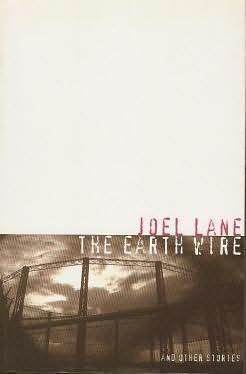
The Earth Wire and Other Stories, by Joel Lane
Or at least it should go without saying.
Just like it should go without saying that an actor passing away is a sad thing. I don’t care if you didn’t like his movies. I don’t care if you don’t understand why some people would find his passing sad. What I do care about is the insensitivity of people who mock others for caring.
Don’t you all realize how close to death we all are?
Don’t you realize that you could have died a dozen times over if things had gone differently in your life and in the lives around you? If a single part of your body doesn’t do its job for a fleeting moment, you could die. Did you know that? Did you know that if the guy behind you had stopped texting a moment later than he did, he might have rear-ended your car and killed you or your loved ones just this afternoon? Don’t you understand how incredibly precious and fragile life is and that some of the biggest mistakes we can make are to a) not appreciate it or b) deride those who do?
It might surprise some of you to find out I’m a spiritual person. I don’t talk about it as much as I should because I’m frankly embarrassed at the smarmy, exclusionary attitudes of many people who claim to be religious and who, in actuality, treat faith as some sort of country club rather than a means of loving others and cherishing life. I mention my spirituality because I’m going to use a word below that holds a great deal of meaning to me. But don’t worry, you don’t have to be spiritual to use and appreciate the word. I promise you that I don’t see myself as any better in any way than any of you, whether you’re spiritual or not.

Perpetrator of the Country Club Mentality
So what is the word?
Thankful. I am so incredibly, unceasingly thankful for every moment I get to spend with my family, for every instant I get to be alive, for every visit I get to have with my eighty-eight year-old grandparents, for every wrestle I get to have with my three small children. I’m thankful for every kiss I’m able to give my wife, and I’m thankful for every keystroke I get to type.
And I’m sorry for the actor who died today, just as I’m sorry for the writers we’ve lost too soon. I’m sorry for their families, and I wish I could take away their suffering. But I’m thankful for everybody who cares about others and for everyone who realizes just how close we all are to not having this amazing opportunity.
And I hope those who make fun of people who care about others and appreciate life wake the hell up before their time is up. Because they, too, are very close to death. We all are.
That’s all. Sorry for my incoherence, and sorry for any offense I’ve given. Let’s love, people. Let’s laugh together and smile and appreciate.
Let’s be thankful.
Good night.

Gone Too Soon


November 23, 2013
Stephen King’s UNDER THE DOME
I finished Under the Dome a few days ago. I haven’t seen the mini-series, nor do I want to for a good while. That has nothing to do with the negative comments I’ve heard about the aforementioned adaptation and everything to do with one simple fact: I don’t need to see a filmed version.
Because the mental version of the book is still unspooling in my mind.

A Modern Classic
Sometimes you hear a lot of hype about a book, but the reading experience falls short. Sometimes, a book is about what you expected. There are occasionally those glorious occasions when the book exceeds the hype. For an example of this, check out Norman Partridge‘s sublime Dark Harvest, which I’d heard about for several years but never read until a couple months ago. That book knocked me on my tookus.
And then there’s Under the Dome. This novel catapulted my entire body into the air, propelled it through the window in a maelstrom of shattered glass, and sent it tumbling and broken into the lawn. Then, when I staggered to my feet, the darn book rose up from my bedroom floor, blasted through the window, and flattened me again.
I’ve read more than fifty Stephen King books. Under the Dome is one of the top five.
I’ve read plenty of criticisms about it. Too many points-of-view, unsubtle characterization, an anti-climactic ending.
I think those folks read a different novel than I did. Or I’m just crazy.

My Favorite Writer
Because I adore lists, here are just a few reasons why I consider Under the Dome a modern classic:
1. Big Jim Rennie: I love it when a villain takes over a story. The nastier the villain is, the greater the danger to the heroes and the more powerful potential catharsis there exists in defeating him. The Shark in Jaws. The warden in The Shawshank Redemption. Dolores Umbridge in the fifth Harry Potter book (seriously!). Big Jim Rennie is as vicious and calculating and eerily real as any villain in modern fiction. I absolutely despised him. But whenever he was on stage, I couldn’t look away.
2. Baaaarbie: Dale Barbara was an unlikely protagonist, or at least he sure seemed that way. At first, I thought of him as a military Larry Underwood (if you’re wondering about my favorite King book, it’s still The Stand), but as the novel wore on, I realized how much I’d underestimated him—both his capacity for good and the depth of his sins. Plus, he had those three crucial traits: grit, wit, and It.
3. The Twists and the Straightaways: When I thought I knew who would live and who would die, I was often wrong. I never would’ve guessed what Andy Sanders would become. I had no idea I’d end up liking (or at least caring about) characters like the town drunk and the resident meth-maker. Sure, there were plot twists I saw coming; King never sacrifices plausibility for sheer shock value. But the things I did see coming fit beautifully into the framework of the tale, and King still found a way—via his technique, his timing, or even his word choice—to render those foreseen developments fresh. The intertextuality with his own works or the works of others—particularly William Golding’s Lord of the Flies—was so deftly handled that the novel would have been diminished without it.

The Definition of a Classic
I could write about this book for days, but I think an imperfect analogy might work best here. When Michael Jordan—the best player in basketball history—returned from retirement for the second time, it was with the Washington Wizards. Jordan had lost a step or three, and he no longer aired like he once did. But there was still magic in his shoes, and though his last team never did much, he certainly flashed moments of the old brilliance.
But in one amazing game Jordan again surpassed the fifty-point mark, including an astonishing thirty-four-point first half. Watching Jordan out there performing his wizardry (sorry), it was obvious that all his accumulated knowledge and experience had been distilled into something transcendent. He pulled up for mid-range jumpers, he knocked down threes. He even threw down a thunderous dunk. Watching Jordan that night was like watching him in his prime, only it was somehow greater. He had defeated time. Or at least spun back the hands of the clock for one marvelous night.
Reading Stephen King’s Under the Dome was like watching Jordan work his magic that night. Only King’s brilliance lasted for over a thousand pages (1348 pages on my Nook), and King never let up. Here was King scaring the hell out of me. Next was King breaking my heart by describing the death of a character I loved. King created a villain, and then another one even more monstrous, and then he threw me a bone by killing off a minor villain. Then he walloped me with some poetic setting descriptions before making me belly laugh at a shockingly crude joke. In other words, it was all there. The whole amazing repertoire. But that doesn’t begin to describe this book.

Recapturing the Magic
I said the Jordan comparison was imperfect, and it is. Woefully so. Because King never really retired the way Jordan did. King never had a game like the one Jordan had prior to the explosion alluded to above (Jordan only scored six in the game before the one I described; the worst games King ever played, Rose Madder and Insomnia, were still twenty-point/six-rebound/four-assist performances and far better than most writers could ever dream of mustering). And unlike Jordan was that night, King is not—in my opinion—immersed in the twilight of his career.
No, I don’t believe King’s almost done. In fact, I believe, like the great Elmore Leonard, Stephen King is going to be producing amazing books for at least a couple more decades. I base this on the fact that he’s a relentless self-improver, and if you don’t believe that, compare his early stuff to Under the Dome. Sure, I love his early stuff. ‘Salem’s Lot, The Shining, The Dead Zone, and of course, The Stand are all among my favorite books by any writer. But putting Under the Dome next to the aforementioned titles shows that King has retained the pure storytelling magic that enthralled audiences back in the seventies, yet he hasn’t ceased to grow. Looking at his recent writing, it’s clear that his mastery of point-of-view, his eye for detail, his ability to orchestrate such a mindblowingly complex plot are even more impressive than they’ve ever been. These traits are the hallmarks of an individual who has never stopped learning, who has never gotten lazy.
So yes, I loved Under the Dome. And I love Stephen King’s work. I wrote a letter to him a few weeks ago, a letter I’ll probably never send because I’m afraid he won’t get it, and if he does, I’m afraid he’ll think I’m either trying to ingratiate myself with him or worse, that I’m an obsessed fan.
But friends, let me just say this. From the moment the dome came down until the very last word of that book….I was under that dread barrier too. I shuddered at the atrocities some of the characters committed. I fretted for the safety of my fellow townspeople. I came to fear Halloween and whatever else the premonitions foretold. But most of all, I hoped there would be a few good-hearted souls who would stand up for what was right.
I stood with them under the dome. And if you haven’t yet, I’d strongly encourage you to stand with them too.


November 20, 2013
Powerlessness
We went about sixty hours without electricity. It was about twenty degrees for a good bit of that time.
And you know what?
We were still pampered compared to most of the world.
No, I’m not going to go on some earnest rant about how much we take things for granted because, well, you know that already, right? You know how foolish I’ve felt about inwardly bemoaning the initial inconvenience of not having hot water or having to buy a generator and then fretting electrical cords and other new menaces during the night. So I’ll spare you all of that. Or at least most of that.

Selfie from Last Night
What I will say is how bizarre the confluence was between our power outage and the book I was finishing.
Stephen King’s Under the Dome.
Folks, I’ll blog about this one soon, but for now I’ll just say…nothing. I really will save it for later.
One more thing: Did you know that the audio version of SAVAGE SPECIES is, as we speak, in the process of a serial release via the fantastic company Audio Realms? The first installment (NIGHT TERRORS) is available now.

Listen to the terror…
Gotta go now. Be safe. And warm.


November 16, 2013
Dark Dreaming: A Conversation with Stanley Wiater
Folks, I’m really excited today. Truthfully, I’m excited just about every day because I’m thankful to be alive and I’m endlessly thankful for my family. But right at this moment I’m also excited about something else too. An interview I’m about to share…
If you’ve been around the horror genre at all at any point between 1980 and now, the name Stanley Wiater will be familiar to you. One of our pre-eminent writers, editors, interviewers, and teachers, Mr. Wiater has played a key role in helping the realm of dark fiction evolve into what it is today. He has worked with Stephen King on a wonderful book called The Stephen King Universe. He has interviewed (in print or on television) King, Peter Straub, Ramsey Campbell, David Morrell, Joe R. Lansdale, Richard Matheson, Robert Bloch, Harlan Ellison, Clive Barker, Richard Laymon, Wes Craven, and too many others to mention here. His editing and writing has not only advanced the genre—it has ensured that future generations of horror writers and fans will understand the amazing legacy of which they’re a part. I could write for hours about how much I respect Stanley Wiater, but that would further delay our interview.
So let’s get to it, shall we?
JANZ: First of all, thank you so much for agreeing to talk with me. You are an essential member of the horror genre and a man who has helped shape horror for more than three decades. I am deeply honored to have you on my blog.
WIATER: Thank you for the very kind words. All I will admit to is that, over the years, I’ve become a fairly large fish in what will always remain a relatively small pond.
JANZ: You list Edgar Allan Poe and Ray Bradbury as major early influences on you and your career. These are both incredible storytellers, but they’re also very different storytellers. What did you learn from Poe, and what did you learn from Bradbury?
WIATER: From Poe I learned that words can literally scare you. From Bradbury that words can forever haunt you.
JANZ: You have sold a staggering number of stories, essays, and other works. I know this is putting you on the spot, but do you have any favorites among your own works? If one were unacquainted with your fiction, for example, do you have a story you would suggest that he or she read first?
WIATER: For my books (almost all are now available on Kindle) it would have to be DARK DREAMERS ON WRITING: ADVICE AND COMMENTARY FROM FIFTY MASTERS OF FEAR AND SUSPENSE. It won me my second of three Bram Stoker Awards. I think the title pretty well sums up its contents.
For a short story, my most highly regarded is “The Toucher,” which was the sole winner of a competition judged by none other than Stephen King back in 1980. It was in fact my first professional short story sale. (It will be included in a forthcoming short story collection of all my short fiction.)
JANZ: DARK DREAMERS: CONVERSATIONS WITH THE MASTERS OF HORROR is one of my favorite non-fiction books in the genre. In that book—which I’ve read cover-to-cover about six times—you interview many of my favorite writers of all time (from Stephen King to Richard Matheson to Joe R. Lansdale and too many others to name here). Did you ever feel intimidated or nervous when speaking with these authors? Were you always confident in your interviewing skills, or did you often second-guess yourself? How did you approach an interview with a writer like Stephen King, for instance? (I’m very nervous about interviewing you, by the way.)
WIATER: No, I never felt intimidated by anyone I’ve ever interviewed. That’s why I refer to them as “conversations” and not formal “interviews.” I approached King in the same manner as I have everyone else. I simply say, “Okay, we’re finally alone. Now spill your guts if you ever want to leave this place alive.” That subtle approach has served me well since 1970. My first formal interview with a dark dreamer was with Ray Brabury, which occurred on August 7, 1974. I can remember the conversation like it happened last week….
JANZ: You believe in humanizing a story’s antagonist, and when you write fiction, you go to great lengths to make your antagonists three-dimensional rather than inhuman killing machines. Is there an example of a villain in your own fiction of which you’re particularly proud? And why are you fond of this villain?
WIATER: I try to write stories where the “victims” are also the so-called “villains.” This is the case in “Moist Dreams,” “When the Wall Cries,” “Smoke,” “Close Call” and of course “The Toucher” where the victim/villain is an illiterate little girl from rural Kentucky. There is no greater monster than ourselves.
JANZ: I apologize for how generic this question sounds, but I’m genuinely curious about your opinion. Having lived through and been involved in multiple periods or stages of the horror fiction genre, how healthy do you feel the genre is at the moment, and how do you feel about the genre moving forward?
WIATER: The genre is a self-healing wound. Horror cuts itself open every few years, explores a new facet of itself, then goes back and further explores such traditional elements such as vampires, ghosts and zombies. Most critics now prefer the term “dark fiction” to “horror fiction,” but it’s still about taking the reader on the same journey into the darkness.
JANZ: In CUT! Horror Writers on Horror Film (published, I believe, in 1992), you list and write very eloquently about thirteen films you found particularly disturbing (including Eraserhead, which tops my own list). What horror movies in the past twenty years have you found especially well done (either frightening or disturbing or simply interesting)?
WIATER: Polanski’s THE TENANT (1976) has always shaken me. Yet it’s usually completely overlooked in most discussions. His World War II epic THE PIANIST is also very upsetting for an entirely different list of reasons. But both will haunt you for years even after viewing them just once.
JANZ: You conducted the only filmed interview with the late Richard Laymon that I’ve ever seen. It’s a wonderful interview and a further confirmation of my belief that he was a genuinely kind person. Why do you think Mr. Laymon’s work continues to be so popular?
WIATER: Because he was BRUTALLY direct and honest as a writer. He showed no mercy for his characters–and very rarely for the reader.
JANZ: You once taught workshops at the University of Massachusetts about writing and the business of writing. I realize this is a simplification of what I’m certain are multi-faceted workshops, but what lessons do you especially try to impart on your students?
WIATER: Have a professional attitude until you prove yourself to be professional. Write out the whole story or novel in first draft, rewrite only when you’re done with the entire project. Finish what you write. Sell whatever you write. Keep writing and you will keep selling.
JANZ: Lastly, I’m curious about what you’re working on now. Do you have any fiction or non-fiction projects in mind currently or in the near future?
WIATER: For the past two years I’ve been working on an oral biography of the late Richard Matheson. (He asked me once if I’d be interested in writing his biography, and now is the time for me to tackle it.) I daresay I’ve interviewed Matheson more times than anyone else on the planet, save perhaps for my colleague Matthew Bradley, with whom I co-edited THE TWILIGHT AND OTHER ZONES: THE DARK WORLDS OF RICHARD MATHESON. (Also available as a paperback or a Kindle/Nook book.)
I’m also issuing next year a collection (in two volumes) of all my fiction and selected non-fiction. And hopefully we’ll get DARK DREAMERS: THE TELEVISION SERIES back on the air for a third season. As you know, the first two seasons are out now on DVD. Some of my finest work is done there.
As they say, I haven’t left the building yet…..
JANZ: And at this point in your career, are you more interested in creating your own nightmares or helping others find their own voices?
WIATER: I in fact get bored way too easily, so I try and maintain an equal level of interest of doing both……
And…CUT!
I want to thank Mr. Wiater for making my questions sound halfway decent with his wonderful answers. It was an honor to have him on my blog. If you’re interested in Mr. Wiater’s fiction or non-fiction (and by now, how could you not be interested?), his Amazon page is right here.
Thanks, folks, for reading, and have a beautiful weekend!


November 14, 2013
YouTube Clip of SAVAGE SPECIES: NIGHT TERRORS, The Audiobook (and My Attic)
Hey, friends. What up. Kids in the bath. Wife’s nursing an injured ankle. I’m awaiting tomorrow night’s Christmas tree/house-decorating lunacy. It begins with my crawling into what we call a knee closet, which is a more poetic (and anatomical) phrase for our tiny attic storage space. It’s part of the joy of owning a house built before WWII. So are the rusty nails poking down from the ceiling like lockjaw-inducing stalactites.
Then my son scurries up behind me, effectively cutting off my escape route. Seriously. There’s not even room to turn around. When my daughters pile in behind my son, blocking off the rest of the scant light filtering in from the single bulb, I’m left with a space the size of a pauper’s grave. But hey, at least the Christmas tree mashed in the back corner of the attic has that fresh artificial tree smell odor. I inhale it and can almost forget about the tetanus shot and splinter extractions I’ll need the next morning…

It looks like this. Only smaller. And with more nails.
At any rate, there’s a rockin’ YouTube clip of my new audiobook SAVAGE SPECIES: NIGHT TERRORS. Check that puppy out here. And if you haven’t yet, why not check out SAVAGE SPECIES, the novel? That was rhetorical. If you have a reason not to read it, I don’t want to hear it. Or how about this? You can tell me why if you agree to spend an hour in my knee closet. Deal?

Listen to the terror…


November 2, 2013
BLOODSHOT Opens Big, CASTLE OF SORROWS Wrap, and the SAVAGE SPECIES Audiobook Cover Art
Howdy, friends! My brand-new novel BLOODSHOT: KINGDOM OF SHADOWS has only been out for a few days , but a slew of folks have already taken the plunge (for only $3.99!). I hope the rest of you do too, and even if you’re not a fan of superhero stories, I think you’ll find this one to your liking.

Ready to explode onto your Kindle
And in case you missed it, I also revealed the first glimpse of the new SAVAGE SPECIES audiobook cover art the other day. As there were with the serial novel, there will be six different covers for the audiobook version. So far, Audio Realms has done a fabulous job of capturing the creepy, sleek vibe of the novel with the covers I’ve seen. Case in point…

Listen to the terror…
Lovely. So now I’m taking a deep breath, letting it out, and basking in the joy of having just turned in my sixth Samhain Horror novel, my seventh novel overall: CASTLE OF SORROWS.

The Return of Gabriel
Which means I can now turn my attention toward novels eight and nine. It’s a remarkably liberating feeling. Both of these new projects are extremely exciting for me, and they couldn’t be more different.
So I suppose it’s time I stop talking about them and actually, you know, write.
And wrestle with my children.
Have a great Saturday, friends. If you haven’t grabbed your copy of BLOODSHOT: KINGDOM OF SHADOWS yet, I hope you do soon. You won’t regret it.


October 30, 2013
Halloween Special! SAVAGE SPECIES: NIGHT TERRORS Audiobook for only 99 cents!
Howdy, friends. Got a novel due tomorrow night (Castle of Sorrows), so this needs to be short. The wonderful audiobook company Audio Realms (publisher of, among other authors, Jack Ketchum, Richard Laymon, Brian Keene, Edward Lee, Tim Lebbon, and H.P. Lovecraft) is running an amazing 99 cent sale on SAVAGE SPECIES: NIGHT TERRORS. Trust me, you’re going to want this one. The narrator does a fabulous job of capturing the novel’s vibe and really enhances a story that’s already gotten a great deal of praise.

Listen to the Terror…
BLOODSHOT: KINGDOM OF SHADOWS is available now and kicking butt, so I hope you check that one out as well.
And that’s all for now. Back to editing…





